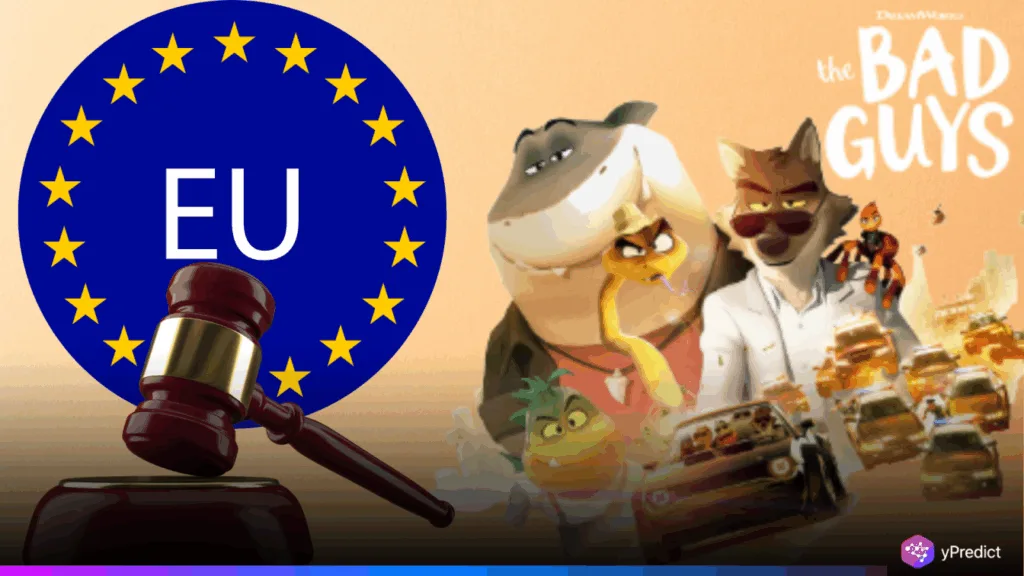
An unveiled promotional shot of The Bad Guys 2 is not all shiny and stylish. But it also comes with a restriction that one cannot use the movie to train AI. The DreamWorks sequel will be released on August 1, 2025. It has gained the interest of not only animation lovers but also those interested in the mere intellectual property standpoint. This clause allows reference to Article 4(3) of Directive (EU) 2019/790. Which is copyright legislation. Granting authors the opportunity to refuse the usage of their work in the development of data mining and AI. It is a daring initiative at a time when there are increasing worries about AI and Copyright.
Promotional Artwork Hints at Exotic Adventure and IP Boundaries
The teaser image depicts a swanky anthropomorphic wolf, suited and with sunglasses, flaunting his stuff against a red-orange sky. The environment is occupied with pyramids and palm trees. Pointing to an Egyptian theme in The Bad Guys 2, which implies an international adventure. Created by Pierre Perifel and JP Sans, the film is a continuation of the famous 2022 original. The filmmakers strived to combine humor, action, and aggressive animation.
However, in addition to the visual pop, the picture has a footnote. Saying it does not consent to being trained on AI, by citing the EU Directive (EU) 2019/790 Article 4(3). According to this law, the rightholders may keep their works out of the text and data mining. The foundation on which the AI generates the content it knows. The appearance of this language in externally facing publications is an indication that creators are increasingly trying to encircle the use of their intellectual property in AI development in the law. Even though it is still intricate to enforce. It creates a precedent in public, especially on projects with a multinational outreach.
Creative Industry Pushes Back Against Unregulated AI Use
This position is part of the growing panic in the artistic community. According to a 2023 European Commission survey, 68 percent of artists are scared of the misuse of their work by AI. Some think that the AI art tools get a little too liberal. In using already existing material without permission or payment. It was categorically stated by filmmaker Michael Bay, who claimed that AI does not create but copies. That criticism is consistent with a 2022 study conducted by MIT that indicated that AI art is frequently unoriginal. This poses ethical concerns associated with ownership and authenticity.
This opposition is increasingly getting louder. The appreciation of filmmakers and viewers is being celebrated by films that stand up. The clause of The Bad Guys 2 on the internet has been hailed directly, with some people advising other productions to toe the line. With their proliferation in the art, writing, and animation industries, the creators have been requesting regulations to protect the worth of human effort. Such wording of the law may foreshadow more widespread reforms not only in the film credits and distribution contracts but also in streaming services. Although enforcement can trail in the footsteps of innovation, clear intent in the given matter can define the emerging AI-policy ecosystem.
New Era of AI Accountability in Creative Media
The Bad Guys 2 does not play with the idea of a globetrotting adventure, but a legal line in the sand. The move by DreamWorks to use EU copyright law to prevent the training of AI models is an attempt to warn other sectors of the industry against generative AI. This provision may be taken as an indication of awareness and resistance emerging among creators in spite of the uncertainty of actual enforcement. With other productions following suit, it could be that another new norm has been established, whereby creative ownership will reemerge despite the fact that technology will still have a tendency to evolve.






